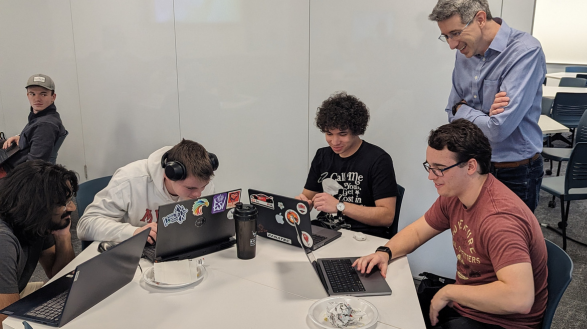Mark Jeanmougin holds Investigation Workshop for Miami Cybersecurity Club
The workshop, designed to simulate a real-world cyber attack scenario, focused on a widespread form of cyber theft involving stolen gift cards and automated PIN guessing attacks.

Mark Jeanmougin holds Investigation Workshop for Miami Cybersecurity Club
Held in the university’s new McVey Data Science building, the session attracted a keen audience of students eager to enhance their cybersecurity skills and knowledge. Jeanmougin, leveraging his extensive experience working and teaching in the field, taught participants how to use UNIX command line tools to investigate Apache log files. He then guided student teams through the intricate process of investigating a cyber attack within a simulated dataset of 17 GB of Apache logs, where students were tasked with uncovering evidence of the gift card attack.
The workshop emphasized the practical application of UNIX command line tools, such as grep, cut, sort, and awk. These tools are fundamental for cybersecurity professionals to sift through vast amounts of log data efficiently. By employing these techniques, students learned how to isolate and identify malicious activities hidden within the dataset. This hands-on experience provided students a glimpse into the complexities of detecting intruder activities hidden in the large amounts of log data, most of which records legitimate activities.
The event concluded with an interactive session with Jeanmougin, where students shared what their teams had learned about the PIN guessing attack, including its source, scope, and tactics used by the attacker. The enthusiasm and participation from the students underscored the growing interest in cybersecurity education and the importance of hands-on learning experiences.
Miami University’s Center for Cybersecurity continues to be at the forefront of cybersecurity education, providing students with opportunities to learn from industry leaders like Mark Jeanmougin. Events like these play a crucial role in preparing the next generation of cybersecurity professionals, equipped with the knowledge and skills to navigate the ever-evolving landscape of cyber threats.